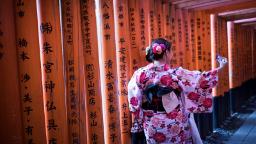Travel to Japan during Covid-19: What you need to know before you go


Editor’s Note — Coronavirus cases remain high across the globe. Health officials caution that travel increases your chances of getting and spreading the virus. Staying home is the best way to stem transmission. Below is information on what to know if you still plan to travel, last updated on January 28.
The basics
Japan was lauded for containing the virus during the first wave but has seen a surge in cases, with a major spike in November and December.
As of January 28, Japan has diagnosed 372,545 cases of the virus and 5,298 deaths.
Currently, twelve prefectures are now in an official state of emergency: Aichi, Chiba, Fukuoka, Gifu, Hyogo, Kanagawa, Kyoto, Osaka, Saitama, Shizuoka, Tochigi and Greater Tokyo. In these areas, bars and restaurants must stop selling alcohol by 7 p.m. and close by 8.
Shizuoka, the last of the dozen to declare an emergency, confirmed three people who were diagnosed with the new coronavirus variant.
What’s on offer
A heady mix of the cutting edge and deeply traditional, Japan remains a major draw for travelers from all over the globe. Whether participating in a traditional tea ceremony in Kyoto, scouring Tokyo’s Akihabara district for tech bargains or soaking in a hot onsen in the forests of Tohoku, this is a country that leaves its mark on all who visit.
Who can go
Japan has some of the most stringent travel restrictions in the world, with 152 countries on its prohibited list. Visitors from Australia, Brunei, China (including Hong Kong and Macau), New Zealand, South Korea, Singapore, Taiwan, Thailand and Vietnam may enter the country, although those traveling from China and South Korea can only arrive into the country via Tokyo Narita airport. Additionally, those traveling for study, work or to join family (subject to visa requirements) may enter.
Prime Minister Suga announced on January 14 that the borders would close to all foreign nationals, although there were no specifics on beginning and ending dates. He also did not specify whether this would apply to foreign citizens with Japanese residency.
What are the restrictions?
Travelers from permitted destinations must undertake a 14-day quarantine, although it is possible to request a PCR test on arrival. A negative result allows you to finish quarantine.
Those traveling under Japan’s revised business travel rules will need to provide proof of a negative PCR test taken within 72 hours of departure, signed and stamped by the laboratory where it was taken. While they will not need to self-isolate, they will need to provide details of their movements for the following two weeks and not use public transport.
What’s the Covid situation?
After low infection rates in the first wave, Japan has seen a sharp increase in cases. The Japanese government’s ‘Go To Travel’ scheme, which subsidized domestic tourism in a bid to boost the economy, has been blamed by some for the rise in positive infections.
Tokyo has been particularly hard hit. The capital recorded 2,447 cases on January 7, the single highest per-day number since the start of the pandemic. Since then, the daily infection rate has remained in the four figures daily.
On January 20, Prime Minister Suga confirmed that Japan had signed a contract to order Covid-19 vaccines from Pfizer — enough for 72 million people. He told media that he hoped the country could be ready to begin inoculations as soon as late February, but nothing has been finalized at present.
What can visitors expect?
While much of Japan remains open for business, cities are far quieter than usual and the government has the right to request the closure of businesses in areas of high transmission. Masks must be worn in public.
Useful links
Our latest coverage
Joe Minihane, Julia Buckley and Lilit Marcus contributed to this story








